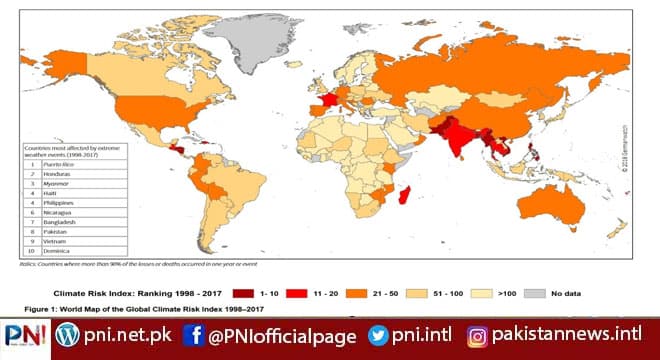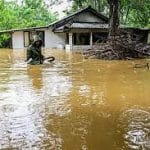ISLAMABAD, May 29 (APP): President SAARC Chamber of Commerce and Industry Iftikhar Ali Malik on Sunday cautioned that looming climate threat hovering around South Asia badly needed joint action to counter this alarming situation.
Talking to a delegation of women led by Ms. Ayesha Abdullah Butt here today, he said climatic variability, according to several studies “greater in the Hindu Kush-Himalaya (HKH) mountainous region of Afghanistan, Bangladesh, Bhutan, China, India, Myanmar, Nepal and Pakistan than in other parts of the world.”
He said glaciers one of the most important indicators of climate change, and the HKH region was the host to some of the world’s largest glaciers, which were the major water source of the Indus, Brahmaputra and Ganges river.
He said climate change affects the hydrological cycle, influencing both water availability and demand.
He said as water became scarce it’s demand also increased. He said that Asian Development Bank in its report in 2014 also underscored the impact of climate change in South Asia which predicted that “warming trend of about 0.75 C has been observed in annual mean temperatures in South Asia over the past century.
Unless there is a concerted efforts worldwide to cut greenhouse gas emissions, South Asia will suffer huge economic, social and environmental damage from the consequences of climate change”.
Iftikhar Ali Malik said that Maldives was one of the more vulnerable SAARC member and it could literally disappear under the rising waters of the Indian Ocean if global warming is not reined urgently andnd then there will be seven SAARC countries left.
Responding to a question of delegation member Ms. Rameen Kashif, recipient of best CEO award, Malik said if the looming threat were not vacated post-haste to thwart the inevitable, the impact would not spare Indian states surrounding Bangladesh,as well as other countries in the neighbourhood ,he added.
The trade leader of South Asia said without joint action”the collective economy of six countries Bangladesh, Bhutan, India, the Maldives,Nepal and Sri Lanka could shrink by upto 1.8 percent every year by 2050 and 8.8 percent by 2100 on average.”
During the course of discussion, Ms Rameen Kashif pointed out that Pakistan and Afghanistan were not far behind and in these alarming and threatening situation SAARC should wake up before it’s to late to mend.
Water shortage, drought floods, landslides and tsunami were not constrained by the national boundaries, she concluded.
Follow the PNI Facebook page for the latest news and updates.









